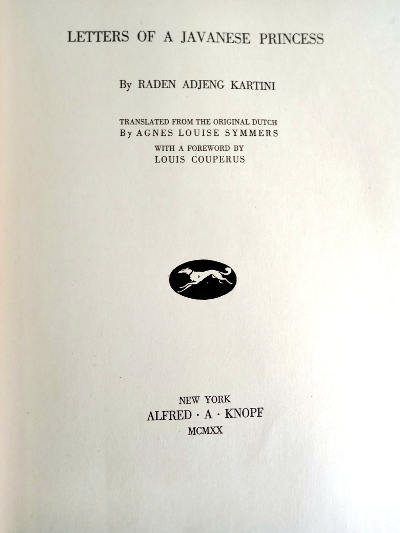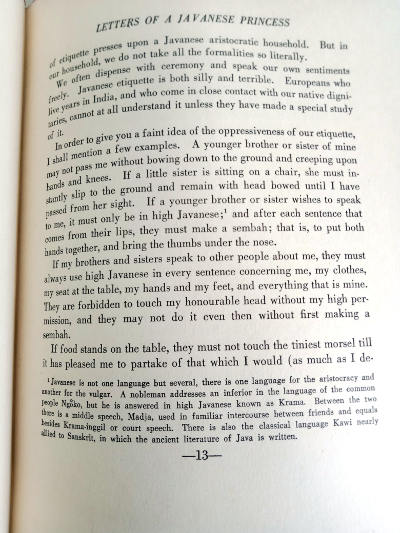About the book (from Goodreads):
Translated from the original Dutch by Agnes Louise Symmers and originally published by Alfred A. Knopf, this collection of letters was written by the daughter of a Javanese civil servant in the Dutch colonial government. She had been permitted the unusual privilege of attending a Dutch elementary school, but then returned home to seclusion during her adolescence, as was the Indonesian custom for women. The letters provide a fascinating picture of the life and spirit of the time during the period when Java was undergoing intimate contact with Western civilization. Through her writings she became a spokesman for the liberation and education of women, as well as an advocate for Indonesian nationalist aspirations.
About Raden Adjeng Kartini (from Wikipedia):
Raden Adjeng Kartini (21 April 1879 – 17 September 1904), also known as Raden Ayu Kartini, was a prominent Indonesian activist who advocated for women’s rights and female education.
She was born into an aristocratic Javanese family in the Dutch East Indies (present-day Indonesia). After attending a Dutch-language primary school, she wanted to pursue further education, but Javanese women at the time were barred from higher education. She met various officials and influential people, including J.H. Abendanon, who was in charge of implementing the Dutch Ethical Policy.
After her death, her sisters continued her advocacy of educating girls and women. Kartini’s letters were published in a Dutch magazine and eventually, in 1911, as the works: Out of Darkness to Light, Women’s Life in the Village, and Letters of a Javanese Princess. Her birthday is now celebrated in Indonesia as Kartini Day in her honor, as well as multiple schools being named after her and a fund being established in her name to finance the education of girls in Indonesia. She was interested in mysticism and opposed polygamy.




